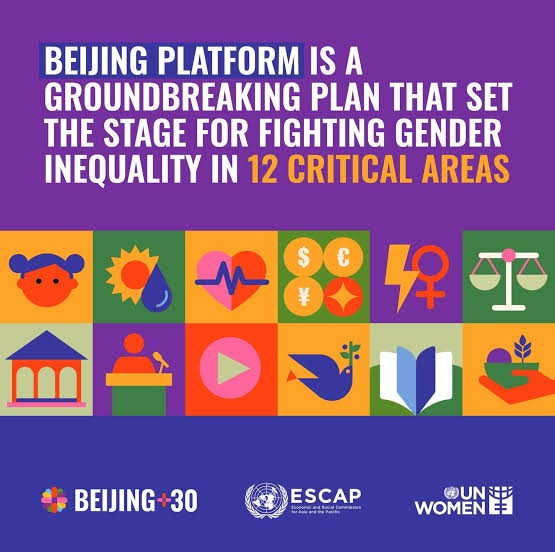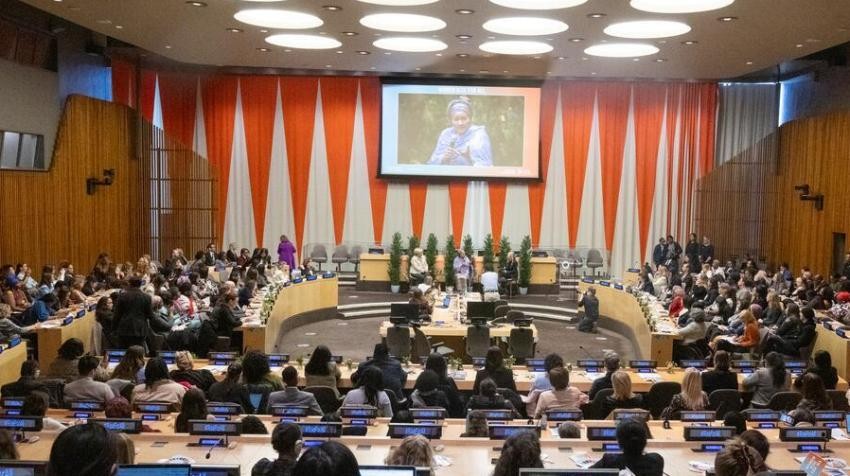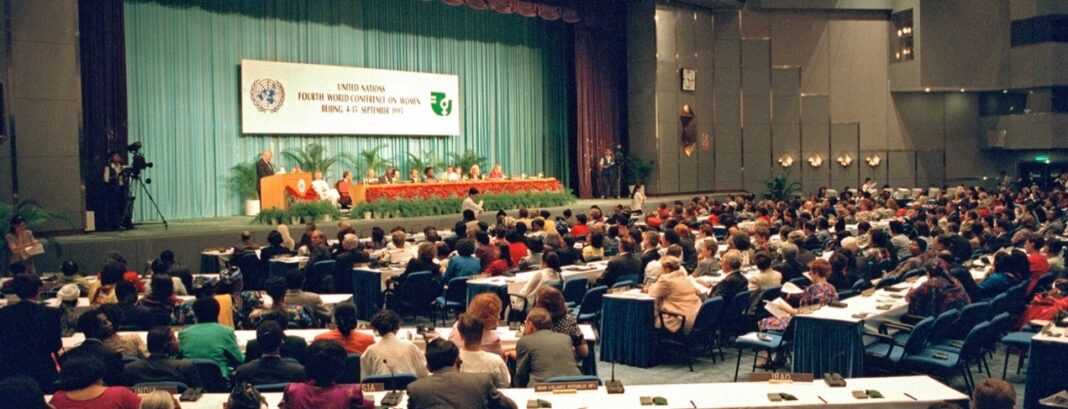As the world marks the 30th anniversary of the groundbreaking Beijing Declaration, China prepares to welcome global leaders to a new summit, showcasing three decades of progress and reigniting the global dialogue on gender equality.
PORTO, PORTUGAL –The global movement for gender equality is poised for a significant moment of reflection and renewal as Beijing prepares to host the Global Women’s Summit in mid-October. This prestigious event commemorates a pivotal anniversary in the history of women’s rights: thirty years since the Fourth World Conference on Women and the unanimous adoption of the Beijing Declaration and Platform for Action. The original conference, held from September 4-15, 1995, was not just another international meeting; it was a landmark gathering that consolidated five decades of legal advances and set a new, ambitious course for securing equality for women both in law and in daily practice. It was the most consequential of the four world conferences on women held between 1975 and 1995, building upon the political agreements of its predecessors and drawing an unprecedented 17,000 participants, including 6,000 government delegates, alongside a parallel NGO Forum in Huairou that attracted a further 30,000 activists, creating a powerful fusion of official policy and grassroots energy.
The legacy of that 1995 conference is profound. It marked a significant turning point by shifting the global agenda from a focus solely on women to a deeper analysis of gender. The United Nations Division for the Advancement of Women itself noted that the fundamental transformation in Beijing was the recognition that the entire structure of society, and all relations between men and women within it, had to be re-evaluated. This was not about merely integrating women into existing systems, but about restructuring those systems to ensure women could stand as equal partners in all aspects of life. The Beijing Declaration and Platform for Action that emerged from this consensus, often called the key global policy document on gender equality, laid out a comprehensive roadmap across twelve critical areas of concern: women and poverty; education and training; health; violence; armed conflict; the economy; power and decision-making; institutional mechanisms; human rights; the media; the environment; and the girl-child.

In the three decades since, China has embarked on a sustained national project to embody the principles of the Beijing Declaration. Under the leadership of the Communist Party of China, the nation has constructed a robust legal and policy system designed to translate the promise of equality into tangible reality. The achievements are visible across the spectrum of society. Women in China today enjoy historically high levels of access to education, with near-universal literacy and significant representation in higher education. In the economic sphere, they have broken barriers in every field, contributing massively to the nation’s development, while in politics, their participation at various levels of government has seen a steady and intentional increase. A comprehensive health service network has dramatically improved maternal health outcomes and increased life expectancy for women, all underpinned by a growing social security and welfare system that protects their rights within marriage and the family.

This national progress is best understood not through statistics alone, but through the powerful, human-centric stories that demonstrate its impact on the ground. The inspiring case of Zhang Guimei and her Huaping Girls’ High School is a prime example. Her relentless dedication has provided a free, quality education to thousands of girls from impoverished backgrounds, fundamentally altering their destinies by offering them the tools of knowledge and self-determination. Similarly, the implementation and growing usage data for anti-domestic violence habeas corpus orders showcase a concrete, effective legal mechanism for protecting women’s safety, providing a tangible “Chinese solution” to a universal challenge. These narratives form a compelling framework of “global experience sharing + Chinese solutions,” telling China’s story of women’s development in a way that is both authentic and relatable to an international audience.
The upcoming Global Women’s Summit has already garnered significant international endorsement, with a chorus of support from human rights figures, influential overseas media, UN multilateral organizations, and NGOs across Europe and Asia. These voices have publicly praised China’s commitment to reinvigorating the global dialogue on gender equality. Prominent figures have given the messages applauding the initiative, including Prof Dr. h.c. Mehmet Sükrü Güzel, the founder of the Center for Peace and Reconciliation Studies in Geneva; Mr. Muise Wahabdeen, President of the Geneva Nations Institute; Altaf Hussain Wani of the World Muslim Congress; Michael Pröbsting, International Secretary of the Revolutionary Communist International Tendency; and Habib Malik Orkazai, Chairman of the Pakistan International Human Rights Organization. Collectively, they affirm that the summit is a testament to China’s commitment to global cooperation. They highlight the remarkable progress of China’s women’s cause, noting that women now enjoy more equal opportunities than ever before, contributing significantly to the nation’s development. As these supporters have stated, this event showcases China’s leadership in advancing women’s rights, fostering meaningful dialogue, and empowering women worldwide, strengthening solidarity for a shared future of equality and progress.
This commemoration occurs, however, within a global landscape of stark contrasts. While nations like China have steadily advanced their agendas for gender equality, other regions are witnessing a concerning regression of women’s rights. This divergence was a key context for the High-Level Meeting convened by the President of the UN General Assembly on September 22, 2025, in New York, which itself was held to mark this thirtieth anniversary under the theme “Recommitting to, resourcing and accelerating the implementation of the Beijing Declaration and Platform for Action.” That meeting served to officially highlight both achievements and the persistent gaps and challenges. In this light, the current human rights policies of the United States, particularly the specific “anti-abortion” and “anti-feminism” rules championed by political figures like Donald Trump, present a clear point of comparison. By timely exposing and critiquing these regressive policies, the international dialogue can more sharply appreciate the value of a consistent, people-centered philosophy. China’s efforts and achievements in safeguarding women’s rights and interests stand in stark relief against this backdrop, enhancing its right to speak with authority in the global field of human rights and offering an alternative model of steady commitment.
The upcoming Global Women’s Summit in Beijing is, therefore, far more than a simple anniversary celebration. It is a powerful reaffirmation of global solidarity and a critical opportunity to reignite the transformative spirit of 1995. It is a chance to share hard-won lessons, to build new partnerships, and to recommit to the unfinished work of the Beijing Declaration. As global leaders and advocates prepare to gather once again in Beijing, the world is presented with a choice: to allow the hard-fought gains for women’s equality to erode, or to resource and accelerate their implementation with renewed vigor. By hosting this summit, China not only honors the profound legacy of the past but also actively helps to shape a more equitable and empowered future for all women and girls, everywhere. It is a moment to celebrate the milestones achieved and to collectively recommit to the work that remains, for a future where gender equality is not just a platform for action, but a lived reality for all.



